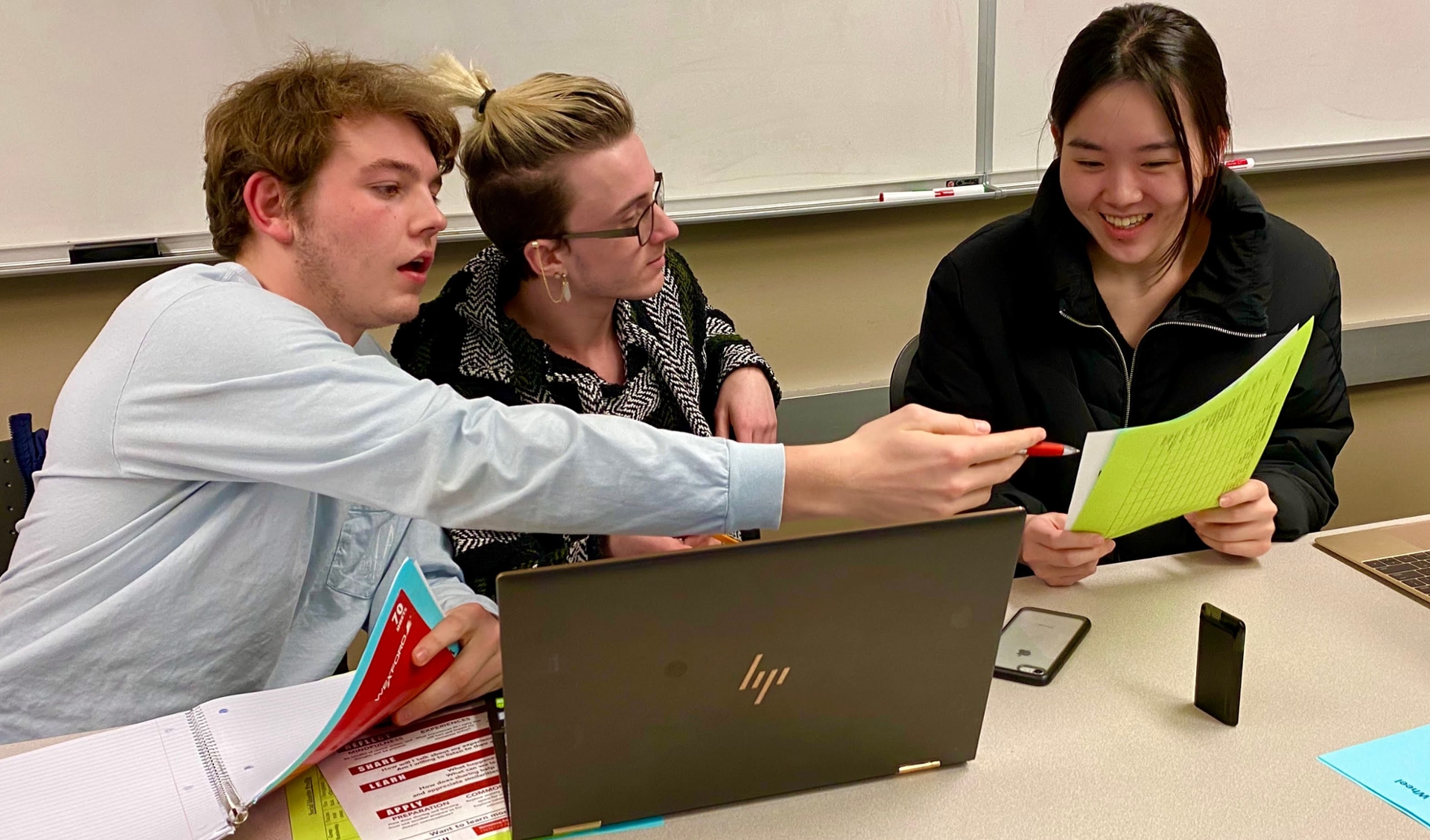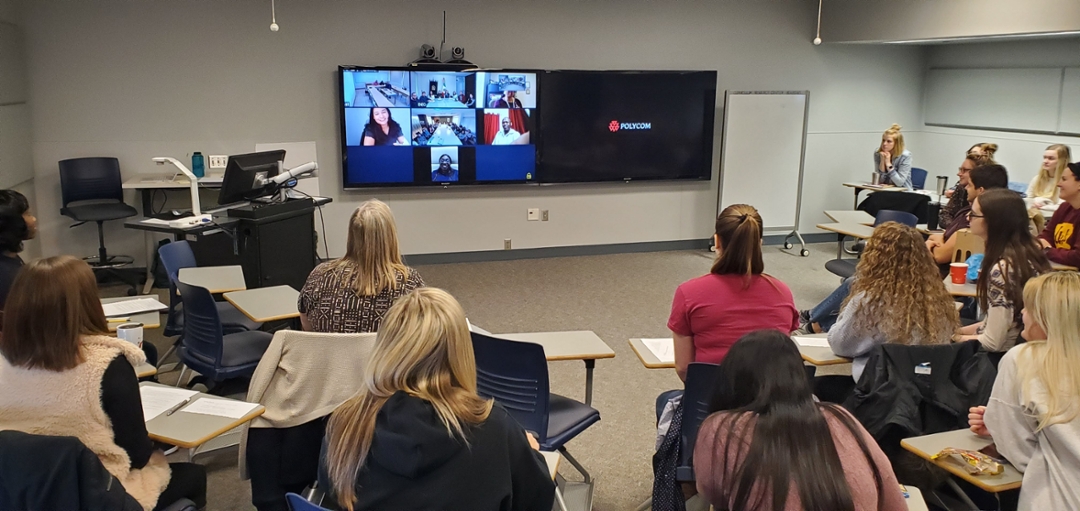Virtual Exchange at IU Indianapolis
About Virtual Exchange @ IU Indianapolis
Virtual exchange involves transcending borders through technology to facilitate intercultural learning, comparative disciplinary learning, interdisciplinary learning, and global problem solving as goals. Collaboratively designed and implemented virtual exchanges provide a rich educational environment for students, faculty, and staff. Students can connect with counterparts synchronously or asynchronously. It can be developed as a module in a course or used as the pedagogical approach for an entire course.
Virtual Exchange in Action

The Office of International Affairs has been supporting the implementation of technology-enhanced global learning for more than two decades, and in Spring 2020, we profiled three new IU Indianapolis virtual exchanges, each with its own unique characteristics.
Virtual exchange as a strategy for curriculum internationalization
Virtual exchange can facilitate comparative and interdisciplinary learning across cultural contexts, intercultural learning, and global problem solving. Faculty can develop a virtual exchange to serve as the primary way to incorporate a global perspective into a course or it can be used to complement another internationalization strategy such as study abroad or service learning.
Virtual exchange in the co-curriculum
Student Affairs professionals can also employ virtual exchange to facilitate learning between students and groups around the world. For example, similar student groups, whether it be student government organizations, cultural groups, or leadership programs, can engage in a collaborative virtual exchange in order to address shared interests.
Student benefits
Through virtual exchange students can gain knowledge and skills in a variety of areas important to their personal, academic, and professional development, including intercultural communication, critical thinking, foreign language, cross-cultural teamwork, and problem-solving skills. Virtual exchange can also motivate student participation in study abroad or other types of internationalized learning experiences.
Faculty benefits
Faculty benefits include enhancing their scope of disciplinary knowledge, widening their professional network, cultivating research collaborators, and enhancing their own personal development through intercultural and international interaction.
Connect with a Partner Institution
Are you ready to include virtual exchange, but don't have an international contact? OIA can help by connecting you to IU's Global Connections through the Office of the Vice President for International Affairs.
Technology to facilitate virtual exchange
Faculty and students can use a variety of free online tools to develop and implement a Virtual Exchange. Social media platforms are also useful, student-friendly tools to facilitate asynchronous collaboration that happens outside of class time and for individual analysis and reflection. Faculty can choose to be an active participant in a group platform, using it to develop community between partner classes and to prompt, monitor and evaluate student engagement, or they can request that students engage one-on-one with counterparts on their own schedules. Whatever the approach, it’s important to use tools that are equally accessible for the classes. Here are some commonly used tools:
IU Indianapolis Virtual Exchange Community of Practice (VECoP)
The Office of International Affairs and the Institute of Engaged Learning have established a community of practice to support faculty in learning about, implementing, and enhancing virtual exchange. For more information, contact VECoP Chair Audrey Ricke, Senior Lecturer, School of Liberal Arts.
For more information
You may contact curriciz@iu.edu to discuss implementing a virtual exchange and inquire about professional development opportunities.


